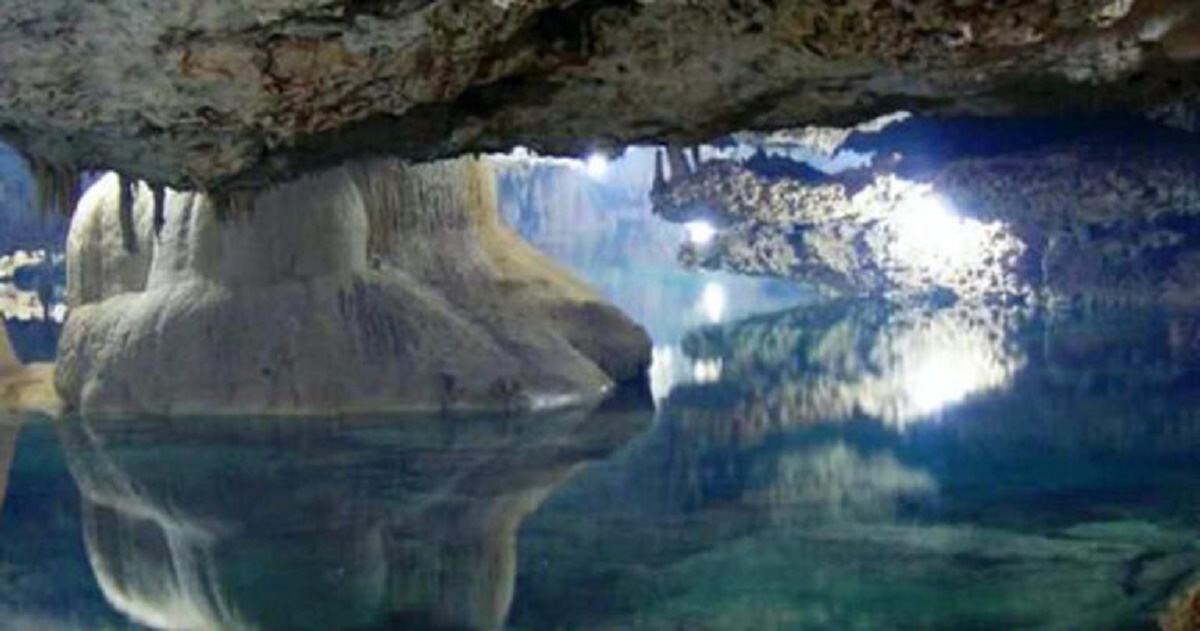Picture this: an ocean so vast that it triples the combined volume of all the surface oceans on Earth, yet it’s not visible from the beach, cruise ship, or even a satellite. It exists, not splashing against shores or under the keel of boats, but ensconced deep within the Earth’s mantle at a depth of about 700 kilometers. This isn’t a setting from a Jules Verne novel; it’s a real scientific discovery that could rewrite the books on our planet’s hydrological secrets.
Discovering Earth’s Subterranean Ocean
In a groundbreaking study, researchers from Northwestern University have unveiled what can only be described as an aquatic treasure trove buried deep within the Earth. The discovery was made possible by examining the mineral ringwoodite, a type of blue rock that exists in the Earth’s mantle and has the unique ability to trap water within its structure. This revelation challenges the long-held beliefs about the origins of Earth’s water, suggesting that our oceans could have a source much closer to home than previously thought.
From Austin’s favorite coffee shops to the quiet corners of libraries where I spend my days weaving words, the idea that there’s a hidden ocean below us sparks conversations ranging from excited chats to deep, philosophical debates about our planet’s mysteries.
The Breakthrough in Deep Earth Science
Steven Jacobsen, a lead researcher at Northwestern University, explains that this massive subterranean ocean was detected using a network of 2000 seismographs spread across the United States. These instruments captured seismic waves generated by over 500 earthquakes. As these waves travel through the Earth, they move differently through wet rock compared to dry rock. This difference in speed was crucial in identifying the presence of such a vast amount of water so deep underground.
The implications of this find are immense. Jacobsen suggests that this reservoir of water could be why the ocean levels on our planet have remained relatively stable over millennia, despite geological changes. It’s a bit like discovering a backup water supply in your attic you never knew about, which could explain why your house has managed to keep cool even during the hottest summers.

 www.wecb.fm
www.wecb.fm
Discovering Earth’s Subterranean Ocean
In a groundbreaking study, researchers from Northwestern University have unveiled what can only be described as an aquatic treasure trove buried deep within the Earth. The discovery was made possible by examining the mineral ringwoodite, a type of blue rock that exists in the Earth’s mantle and has the unique ability to trap water within its structure. This revelation challenges the long-held beliefs about the origins of Earth’s water, suggesting that our oceans could have a source much closer to home than previously thought.
From Austin’s favorite coffee shops to the quiet corners of libraries where I spend my days weaving words, the idea that there’s a hidden ocean below us sparks conversations ranging from excited chats to deep, philosophical debates about our planet’s mysteries.
The Breakthrough in Deep Earth Science
Steven Jacobsen, a lead researcher at Northwestern University, explains that this massive subterranean ocean was detected using a network of 2000 seismographs spread across the United States. These instruments captured seismic waves generated by over 500 earthquakes. As these waves travel through the Earth, they move differently through wet rock compared to dry rock. This difference in speed was crucial in identifying the presence of such a vast amount of water so deep underground.
The implications of this find are immense. Jacobsen suggests that this reservoir of water could be why the ocean levels on our planet have remained relatively stable over millennia, despite geological changes. It’s a bit like discovering a backup water supply in your attic you never knew about, which could explain why your house has managed to keep cool even during the hottest summers.

A Gigantic Ocean Discovered 700km Beneath The Earth’s Surface by The Northwestern University in Illinois
Picture this: an ocean so vast that it triples the combined volume of all the surface oceans on Earth, yet it’s not visible from the
 www.wecb.fm
www.wecb.fm